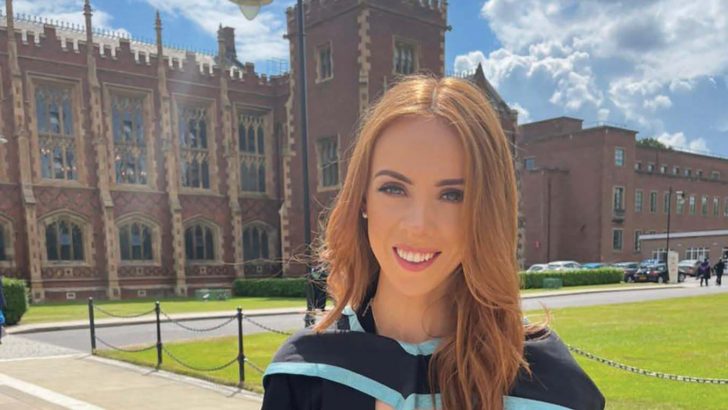If there are, broadly speaking, two sides of an argument, I like to hear from both sides together. Too often inadequately informed or biased presenters just have one side at a time and are unable or unwilling to put the hard questions.
So, I enjoyed the discussion on the Pat Kenny Show (Newstalk, Wednesday) between David Quinn of this parish and the Iona Institute and Michael Nugent of Atheist Ireland. As one listener texted at the end, it was “an intelligent respectful discussion”. The item was prompted by the recent comments of Dublin’s Archbishop Dermot Farrell to the effect that the visibility of the Christian faith in Ireland was vanishing. I’d like to have seen that specific topic teased out more thoroughly, with an acknowledgement of the many green shoots, for example the huge involvement of lay people in parish work during Covid-19 and the many youth groups and charity works. Mr Quinn agreed with the archbishop as far as the figures go – e.g. Mass attendance, drop in vocations, but he sought to put it in a wider context – an increase in individualism and the lessening of a sense of institutional belonging.
Order
Pat Kenny put it to Mr Nugent that religion created order in society but he thought that was an “illusion”. He thought the archbishop’s statement was “significant” and that this had implications for relationships with the State, e.g. in relation to the funding of faith schools, which he saw as the State funding of evangelisation. Mr Quinn felt that parental choice was the key element when it came to education.
Mr Nugent made some very broad generalisations (‘without evidence’ as they say) to the effect that secularists were typically less racist, less nationalistic, less prejudiced, less dogmatic. Mr Quinn reckoned he wasn’t comparing like with like and the differences were more a function of class, with contrasts between poor and rich countries. He also instanced countries that were explicitly built on secular-atheist principles (North Korea, Soviet Union, China) and suggested these weren’t exactly bastions of human rights. Further, he thought Mr Nugent was ignoring the Christian foundations of increasingly secular states in the developed world – pointing out for example the contribution of these foundational principles to the great post-war human rights documents.
I thought Mr Nugent was too inclined to be acerbic and dismissive – e.g. talking about religion ‘preying’ on people. Mr Quinn, while outlining the Church’s huge contribution to education and medical care in the most dangerous of places accepted that over the centuries Christians often fell short of the ideals they preached, suggesting for Christians how endemic sin was and how this showed the need for a saviour. Mr Nugent was again too dismissive and judgemental, suggesting that the missionaries don’t do their work to protect people on the ground but to save souls. He did accept that authoritarian secular states were just as bad as authoritarian religious ones and wouldn’t be happy with state funding atheism.
Prompted
Archbishop Farrell’s words also prompted an item on Sunday Sequence (BBC Radio Ulster) when stand-in presenter Mark Devenport said it wasn’t easy to find young Christians to talk about their faith on radio. I wondered how hard they tried, but they were fortunate in their eventual line-up. Exemplifying the green shoots I mentioned earlier, two young women, Holly Thompson and Shannon Campbell spoke enthusiastically about their faith and how central it was to their lives. Holly, 18, was taking a year out to do an internship with her local church (now there’s an idea for Catholic parishes) while Shannon worked with the Catholic chaplaincy in Queen’s University Belfast. In her work she was seeing faith in action in many of the young people they came across – for example service to the homeless. Holly was asked if it was ‘cool’ to be Christian and she said it was for her, though it depended on who you were with. She found the young Christian community to be vibrant in Northern Ireland. It was an uplifting and inspiring contribution.
Later in the show outgoing Northern Ireland Human Rights Commissioner Les Allenby outlined what his priorities had been, including ‘autonomy rights’ for women. Mr Devenport asked him a question for the pro-life perspective which I’ve rarely if ever heard from a journalist down south – “What have you done for the rights of unborn children?” Mr Allenby deflected, referencing ‘international human rights standards’ but neglecting to mention the Convention on the Rights of the Child which references protection of children before and after birth.
Pick of the Week
MASS
RTÉ One Sunday September 29, 11.00 am
Fr Tom McDermott, Administrator of St Colman’s Cathedral, Cobh, celebrates Mass in the Chapel of The Divine Word Missionaries, Maynooth, with music from members of the cathedral chamber choir, directed by Dominic Finn.
THE CRUSADES
EWTN Sunday August 29, 4 pm, Thursday September 2, 9 am, and (night) 3 am
The Crusades have given rise to many myths and legends, but what’s the real story? Includes re-enactments and insights from leading historians.
NEW! VATICANO
EWTN Sunday August 29, 8.30pm, also Monday August 30, 7.30am, Tuesday 2.30pm
Preview of the International Eucharistic Congress in Budapest, Hungary.


 Brendan O’Regan
Brendan O’Regan Shannon Campbell, Pastoral Manager at Queen’s University Belfast’s Catholic chaplaincy
Shannon Campbell, Pastoral Manager at Queen’s University Belfast’s Catholic chaplaincy 